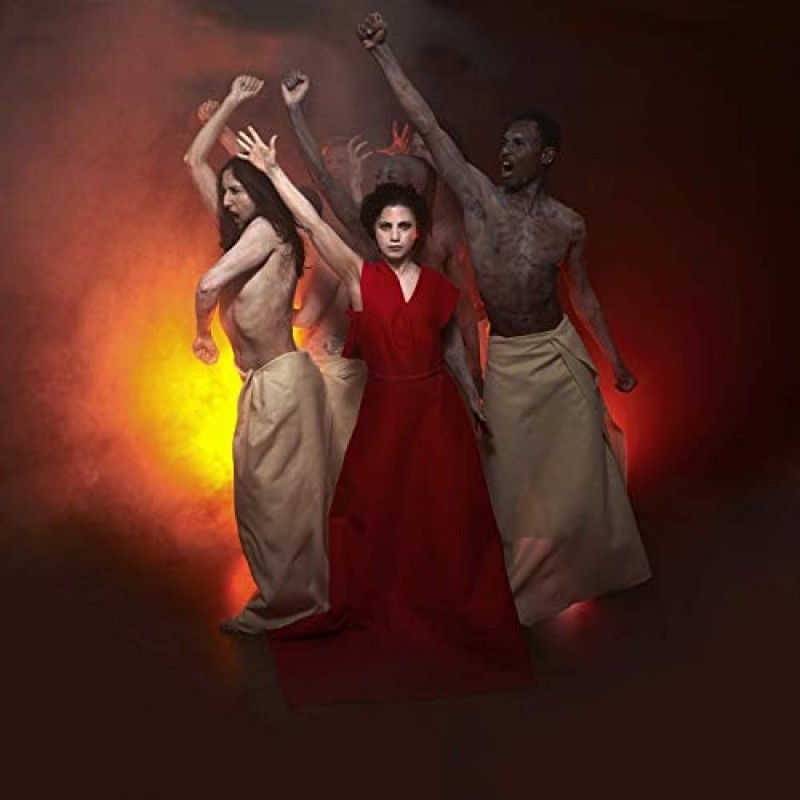Description
Label Review.
2019 album also available on CD.
Our Overview.
Striking a balance between eloquent songcraft, sparse instrumentation, and the voices of the woods, wind, sea, and flames, the Tunisia-born and New York-based singer heralds revolution by trumpeting creative experimentation and now singer Emel Mathlouthi releases her new album ‘Everywhere We Looked Was Burning’ via Partisan Records.
“I had a clear vision for this,” she exclaims. “I wanted an army of furious nature sounds. There’s a menacing apocalypse on the horizon, nature is taking vengeance on the ones who destroyed it. It’s the goddess Kali that comes to burn everything to the ground. Deconstruction is a major theme, yet there’s hope, rebuilding, and resurrection. I went deep inside myself to find true spirituality after getting lost in the atrocities we see all over the world and the superficiality we see on our social media feeds.”
Emel quietly attained the confidence to do so throughout her lifelong musical journey. As the story goes, she offset an oppressive upbringing in the North African country of Tunisia by turning to music. Inspired by everything from Joan Baez, Janis Joplin, Led Zeppelin, and Bob Dylan to Sinéad O’Connor, The Cranberries, and Alanis Morissette, she went from performing in a high school heavy metal band to composing protest songs that spurned a fervent social media following for her artful amalgam of heartfelt melodies and off-kilter electronic production.
Among those, “Kelmti Horra (My Word is Free)” generated millions of views throughout the 2011 Tunisian Revolution. Not to mention, the song served as the anthem for the Arab Spring, gave its name to her debut album Kelmti Horra, and took her to the 2015 Nobel Peace Prize Concert where she performed it to thunderous applause. 2017’s Ensen illuminated her creative strides as produced with Valgeir Sigurðsson (Sigur Ros) and Johannes Berglund (The Knife, Shout Out Louds, Ane Brun). Along the way, Pitchfork declared, “The world needs Emel Mathlouthi’s anthems against the dictatorship machine,” and NPR christened her, “The 21st century’s catalyst for change.” As early as 2017, she started to envision what would become 'Everywhere We Looked Was Burning'.
For the first time, Emel chose to sing the majority of an album in English after only recording a handful of tracks prior in the language. The choice would be informed by settling in New York with her family, discovering the “essential imagery” of poets Rainer Maria Rilke, T.S. Elliot, and John Ashbury, and “thinking back to how music in English was so important growing up.” She initially rented a house in Woodstock, NY and set off to “write about nature as well as the beauty and struggle of these times.”
In the end, Emel realizes her own power for change. “When you listen to this, I hope you feel strong and hopeful, but I want you to be conscious of it and the universal stakes,” she leaves off. “We’re going through some bad times. However, we’re all here. Let’s fight together. See the darkness. Then, make it brighter by connecting back to nature and truth within.”“The Tunisian protest singer wields her commanding, gothic voice over grave beats and starkly forbidding strings, creating an atmosphere of suspense and peril” - The Guardian
Headline European tour (October to November), including a headline show at Hoxton Square Bar & Kitchen in London.


